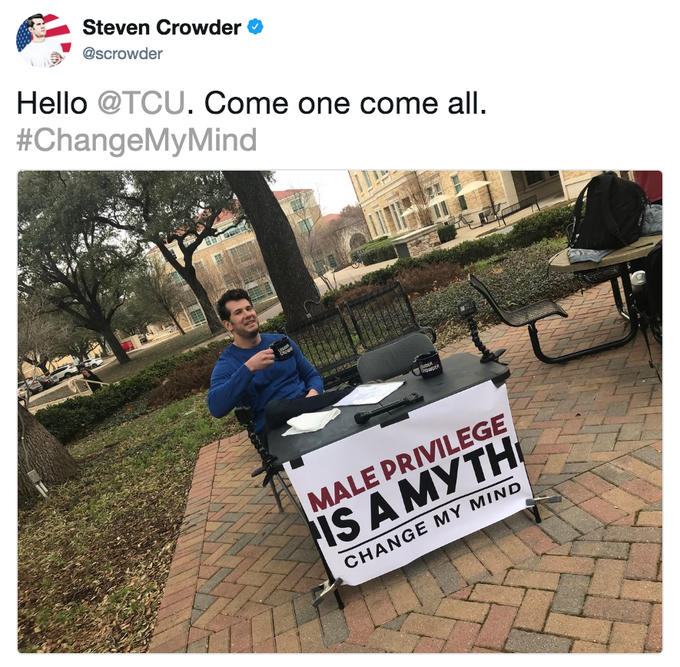One thing that's come up in a few of the Supreme Court's recent blockbuster decisions is the shakiness of the fact pattern in the underlying case. Mr. Kennedy in Kennedy v. Bremerton School District wasn't really just an average citizen whose desire to privately pray on his own was stymied by the evil liberal school district. Ms. Smith of 303 Creative v. Elenis might have outright falsified documents suggesting that a gay couple asked to engage her services. The Supreme Court's conservative majority did not care, blitzing ahead in decisions that made dramatic alterations to major areas of constitutional law doctrine.
At one level, I actually understand the perspective here. When it comes to abstract, "philosophical" question regarding the scope of the Establishment Clause or whether anti-discrimination law must sometimes yield to free speech commitments, the details of the individual case don't really matter. If it wasn't Kennedy, it'd be someone else. If what you care about is the broad, sweeping change -- interring Lemon v. Kurtzman for good, or laying a marker that public accommodations laws must yield to businesses' right to "expressively" discriminate -- the details don't affect the underlying arguments all that much. The same claims and counterclaims that would be made in any case would be aired here. 303 Creative probably already felt like the can that was kicked down the road from Masterpiece Cakeshop. Similar impatience was seen in some of the concurrences in Fulton v. City of Philadelphia -- we know we're going to have to decide whether to revisit Employment Division of Oregon v. Smith, and we know the arguments for and against preserving the precedent, so why delay the inevitable? Just make the decision one way or the other and get it done.
At another level, though, this speaks to how the current conservative judicial cadre really doesn't care about the formalities of law and legal doctrine. It's movement conservatism through and through -- the important thing is the bottom-line results, and the Court will shoot first and let others clean up the mess later. This especially stood out for me in 303 Creative, a case where it was striking how much more legalistic Justice Sotomayor's dissent was compared to Justice Gorsuch's majority opinion. The former, whether one agrees with the result or not, worked through the relevant First Amendment doctrine via the same methodology I'd teach my students -- explaining the relevant doctrinal framework, explaining why this case falls into a particular part of the framework, and explaining the implications thereof. The majority opinion was basically an abstract ode to the importance of free expression but skipped past significant swaths of the seemingly essential legal analysis (often by vague gestures at party "stipulations" or just treating as gospel certain holdings of the Tenth Circuit). It was hard to escape the sense that the nitty-gritty details of Lorie Smith's case were not at all what interested the majority, and so they were disinclined to spend significant time on them. They wanted to make a big statement about the interplay of free speech and anti-discrimination law, so that's where they devoted their attention.
From that vantage, the fact that Lorie Smith's case may not have been the cleanest vehicle isn't really all that important. Of course, from the vantage of lower courts trying to figure out what the hell 303 Creative actually means, it's extremely important, because nobody actually knows the concrete rule that 303 Creative is actually establishing, and the blurry fact pattern means that trying to infer it from Lorie Smith's situation is a doomed initiative. But again, that's someone else's mess to deal with. I honestly believe that the Justices in the 303 Creative majority did not care if Lorie Smith, personally, deserves the exemption from anti-discrimination law under the doctrine that will eventually lay out. What they cared about is being decisive in defending the existing of these exemptions in concept. Lorie Smith just had the good fortune to be the next case in line that could be plucked onto the docket.
I've written before of the Machiavellian character of the current Supreme Court, specifically, it's absorption of Machiavelli's advice to tyrants: that they should take their big oppressive swings early, in full force, and all at once. You won't gain any advantage from dragging things out, and you'll probably get credit if you cut back later. And the repeated pattern we've seen is of the Court taking these huge right-wing swings that delight conservatives on the level of ideology, but without much care for how they can be operationalized as a workable legal doctrine, and leaving it lower courts to clean up its mess. And to give an inch of silver lining, there is the chance (this follows from Machiavelli too) that as that "mess" resolves itself the Court will then quietly file down some of the roughest edges. The Bruen decision, which reads as a right-wing ideological fantasy document but which has unleashed utter chaos in lower courts, may be an example if the Court uses the Rahimi case to cut back the most extreme interpretations. Take the big swing, make the chest-out assertion of insisting that no amount of public necessity can weigh against robo-originalism, and then later on at their discretion maybe pick and choose a few morsels to dial back on and claw back some legitimacy.
But nonetheless, it really is striking the degree to which the conservative legal movement just no longer cares that much about the law. As a law professor, it makes for depressing teaching. As a citizen, it makes for depressing living. Just depression all around.



